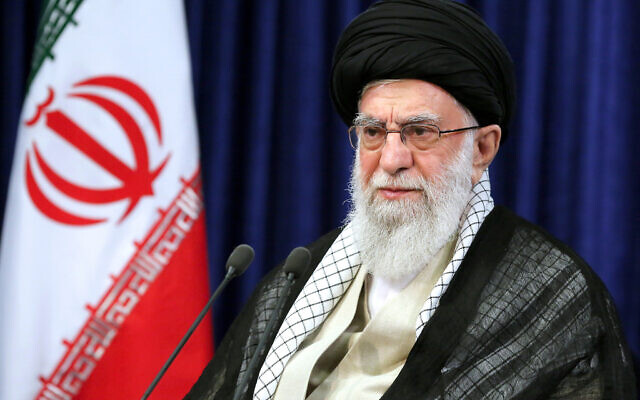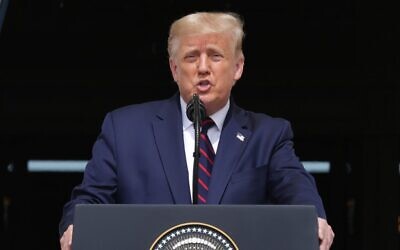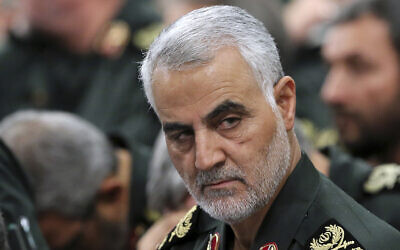
American intelligence reports indicate Iran has avoided strong military action against the US — despite an intense pressure campaign by Washington that has included tightening sanctions and rumored attacks on its installations — because it believes restraint will help prevent President Donald Trump’s reelection in November, according to a New York Times report.
The newspaper cited several American officials and US allies who were briefed on the intel reports. It said Iranian Supreme Leader Ali Khamenei is hoping for a less antagonistic US administration come January, but believes a significant conflict between the countries will bolster Trump’s odds of holding on to the presidency.
The report said the Iranians believe a July explosion that damaged one of its nuclear sites in Natanz, and which foreign media reports have attributed to Israel or the US, was intended to provoke a response that would justify military strikes on the Islamic Republic.
It also said that while Khamenei has forbidden serious military action, he has allowed extensive cyber activity and hacking attempts against US targets. Last week Microsoft said Iranian hackers have engaged in attacks on personal accounts of those associated with Trump and his campaign, in an effort to influence the 2020 election, though it said its security tools stopped most of the attempts.

On Saturday Iran’s Revolutionary Guards chief said Tehran will avenge the US killing of its top commander General Qassem Soleimani in January by targeting only those involved, in an “honorable” retaliation.
The guard’s website quoted Gen. Hossein Salami as saying, “Mr. Trump! Our revenge for martyrdom of our great general is obvious, serious and real.”
Trump warned this week that Washington would harshly respond to any Iranian attempts to take revenge for the death of Soleimani, tweeting that “if they hit us in any way, any form, written instructions already done we’re going to hit them 1000 times harder.”
The president’s warning came in response to a report that Iran was plotting to assassinate the US ambassador to South Africa in retaliation for Soleimani’s killing at Baghdad’s airport at the beginning of the year.
Salami rejected the report of an Iranian plot to assassinate Ambassador Lana Marks, but made clear that Iran intends to avenge the general’s death.
“Do you think we hit a female ambassador in return to our martyred brother?” the general said. “We will hit those who had direct and indirect roles. You should know that everybody who had a role in the event will be hit, and this is a serious message. We do prove everything in practice.”

In January, Iran launched a ballistic missile attack targeting US soldiers in Iraq in response to the fatal drone strike.
Trump has stepped up economic pressure on Iran with sanctions since he pulled the United States out of Iran’s nuclear deal with world powers in 2018.
Tehran has continued to expand its stockpile of enriched uranium and pressured other nations to offset the harm of US sanctions, while insisting it does not want to develop a nuclear weapon.
On Saturday night the United States unilaterally proclaimed that UN sanctions against Iran were back in force and promised to punish those who violate them. However Washington is almost alone on the issue: all the other great powers — China, Russia and also the US’s own European allies — have challenged the claim.
